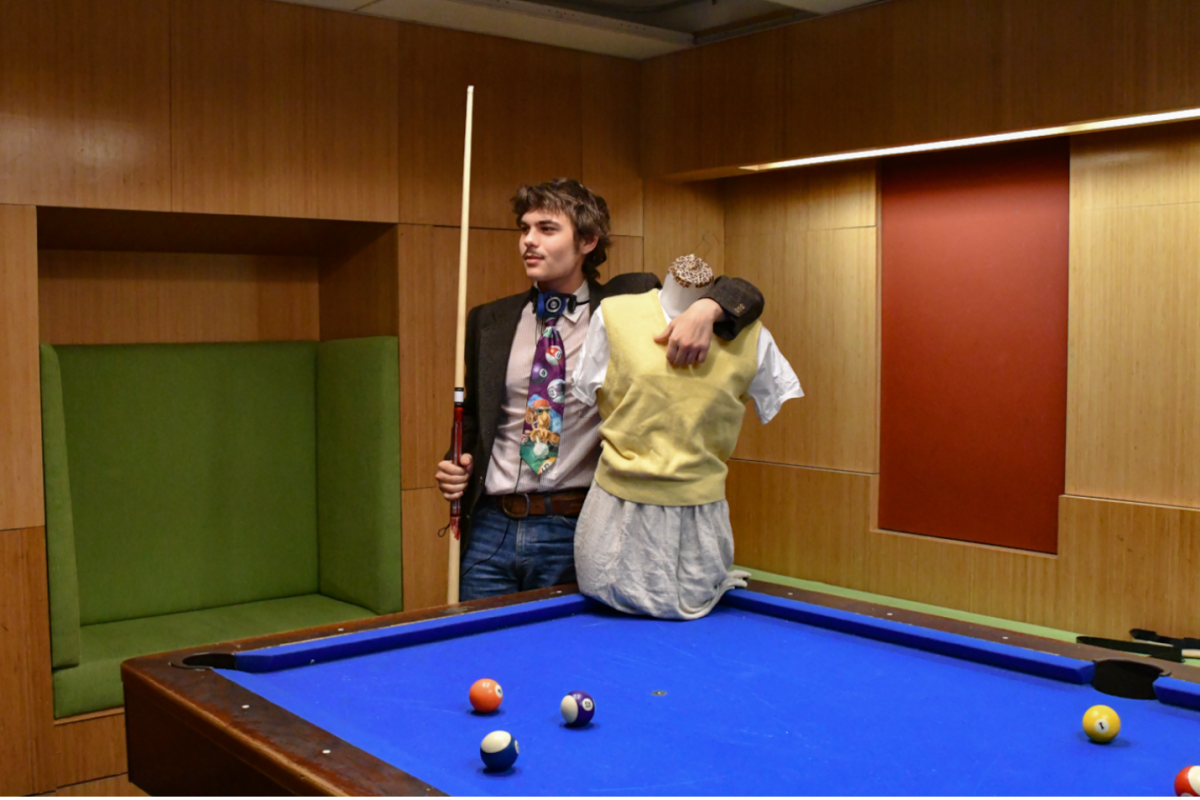
A disillusioned protagonist, a propulsive dark ambient score and a bleakly ambiguous ending. Chances are if the film you’re watching contains these features, you’re watching a David Fincher flick. Few directors have amassed such an illustrious resume. From “Se7en” to “Gone Girl,” the director has enthralled audiences with films equal parts terrifying, mysterious and innovative.
Fincher got his start with “Alien 3” in 1992, an underwhelming sequel to the heavily lauded “Aliens.” Panned both critically and commercially, Fincher has remained the film’s most outspoken critic. By the late 90s, however, the director produced a string of cult hits that would lay the foundation for his mainstream success in the early 2000s.
“Se7en” (1995), a stellar noir in which the killer’s M.O. revolves around the seven deadly sins, featured a strong cast led by Brad Pitt, Morgan Freeman and Gwyneth Paltrow. The grimy, harsh opening sequence sets down a foreboding blueprint that the gloomy film follows faithfully. Featuring harrowing chase scenes, captivating performances by all three leads and a horrifying twist ending, “Se7en” is an underappreciated masterpiece from a young director.
Fincher produced what would become his most notorious work, “Fight Club,” in 1999. Initially, the Brad Pitt/Edward Norton vehicle polarized theatergoers and critics alike. Ever since, the twisty narrative has found immense success on DVD and has transformed into a smash cult hit. Its frames unleash brutality and philosophy in healthy doses. Of all his films, this one earns the most repeat viewings.
Fincher later revisited his crime caper days with “Zodiac” (2007). An overlong but captivating study of the Zodiac killer in 1960s and 70s San Francisco, the film was Fincher’s most fully realized effort to date. “Zodiac” cemented the stylish neo-noir approach he experimented with in “Se7en” and “Fight Club,” which he subsequently perfected in later efforts like “The Girl with the Dragon Tattoo.” After “Zodiac’s” success, he went against type for a meditative study of aging and death.
2008’s “The Curious Case of Benjamin Button” introduced audiences to a reserved and contemplative Fincher, who adapted this F. Scott Fitzgerald short story with Brad Pitt in the titular role. The film, which tells the story of a man who ages in reverse, was both praised and criticized for its romantic narrative. Many viewers likened it to a stylized “Forrest Gump” in reverse, a critique that holds merit. “Button” overdoes on schmaltz at many points. It’s never more potent than when Benjamin and Daisy (Cate Blanchett) inevitably “meet in the middle,” but Fincher’s film maintains its merit with powerful performances and thought-provoking themes.
Fincher’s magnum opus remains “The Social Network” (2010). The film is a testament to his integrity as a director – he turns the rise of Facebook into a drama more thrilling than any of his crime sagas and more innovative than its subject. “The Social Network” time hops at breakneck pace between the simultaneous trials against Mark Zuckerberg (Jesse Eisenberg) and the days he spent at Harvard developing Facebook.
Fincher crosscuts between Zuckerberg’s “Facemash,” a system for rating female students upon their profile pictures, and a club party at the school, which similarly degrades women. No dialogue matches the two narratives. Only the objectification of women links them. Poetically, Fincher portrays the transference of sexism across new mediums, an old monster disguised by digital drapes.
“The Social Network” also sparked the director’s creative partnership with Trent Reznor and Atticus Ross, both of whom went on to compose the director’s following films “The Girl with the Dragon Tattoo” and “Gone Girl.” Reznor and Ross’s dark ambient scores have become as much of a character in Fincher’s films as the A-list actors who fill the director’s frames. The score of “The Social Network,” which nabbed the Academy Award for Best Original Score, injected the film with a sense of dread, anticipation and excitement. Electronic blips accented Aaron Sorkin’s rapid-fire script and caffeinated the historical drama.
The film’s surgical precision of editing and direction saves its place as one of the greatest films of the millennium. Both its critical scores and commercial performance reflect its brilliance. Whereas great American novels symbolize the era in which they were published, this film perhaps represents the first true great American film. “The Social Network” incisively studies and criticizes our brave new world.
In 2011, Fincher adapted Stieg Larsson’s smash novel “The Girl with the Dragon Tattoo.” The film, perhaps the director’s most brutal since “Fight Club,” was dominated by Rooney Mara’s relentless performance as Lisbeth Salander.
Last week on Oct. 3, Fincher released “Gone Girl,” an adaptation of Gillian Flynn’s successful novel. The film continues the success of Fincher’s past few films. With a tortuous plot, creepily unreliable narrators and a mammoth twist, it celebrates all that is David Fincher.
Alexander Frail can be reached at [email protected].


















